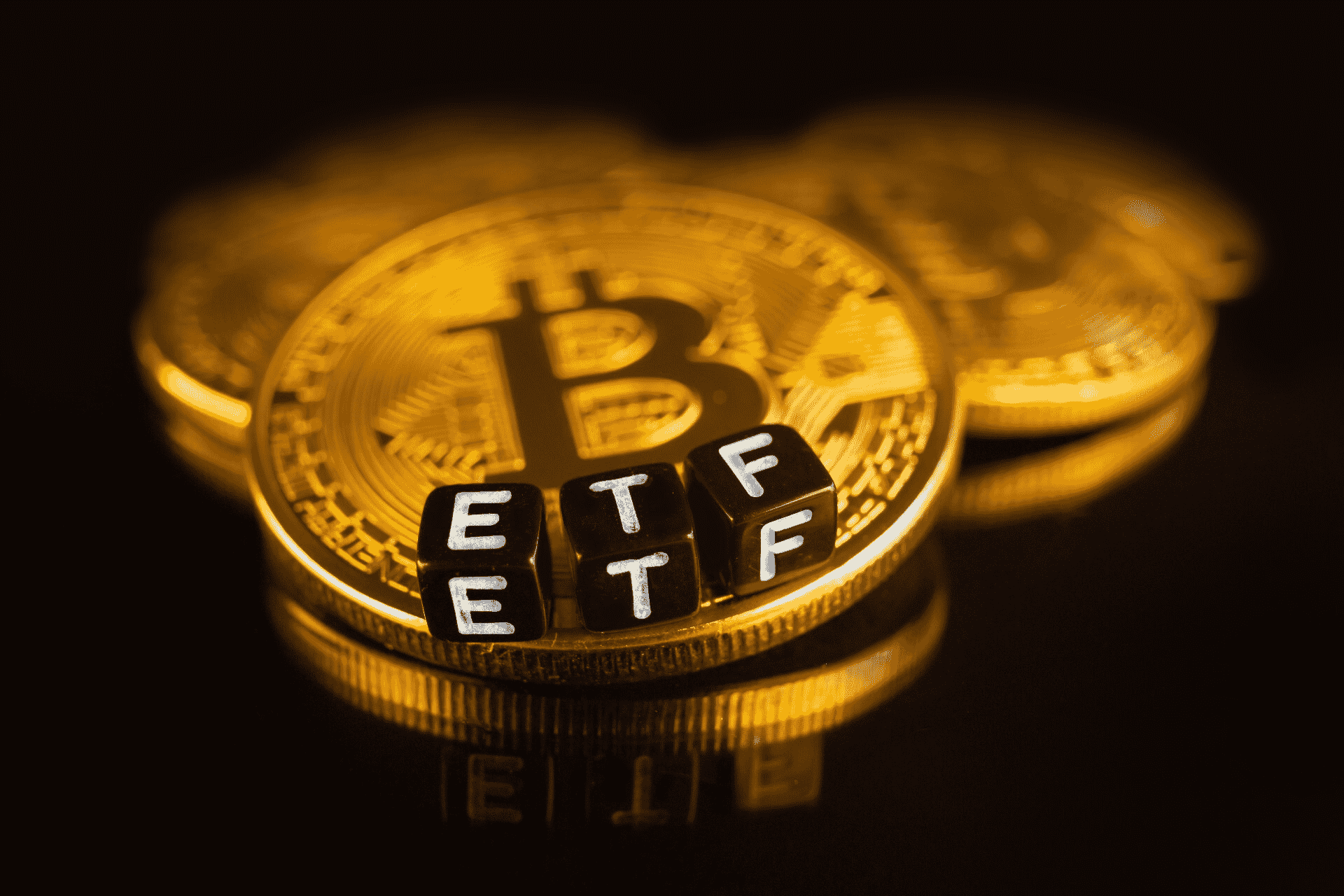

What Are Bitcoin ETFs? An Updated Beginner's Guide (2024)
In the era of digital currencies, investors seek accessible avenues to engage with the potential of cryptocurrencies. One such avenue that has shown potential is Bitcoin ETFs.
In this article we will answer the question what is a Bitcoin Exchange-Traded Fund (ETF) and Bitcoin Futures ETFs, shedding light on their characteristics, benefits, and considerations, to aid investors in making informed choices.
What are Bitcoin ETFs? Is there a Bitcoin ETF?
The answer is Yes. There are Bitcoin ETFs available which are designed to offer exposure to Bitcoin's price dynamics without the complexities of direct ownership.
These ETFs are traded on traditional exchanges, and cater to retail investors. Bitcoin ETFs are also a good option for people who are hesitant about diving into the world of cryptocurrencies.

While Bitcoin ETFs are yet to receive the SEC approval for direct representation of underlying cryptocurrency, Bitcoin Futures ETFs linked to Bitcoin futures contracts traded on the Chicago Mercantile Exchange (CME) have been sanctioned.
Choosing a Bitcoin ETF
Among the various Bitcoin ETFs available, it is always advisable to consult a professional advisor to determine the best fit for your investment goals and also do your own research.
However, notable Bitcoin ETF options include:
- Proshares Bitcoin Strategy ETF (BITO)
- Valkyrie Bitcoin Strategy ETF (BTF)
- VanEck Bitcoin Strategy ETF (XBTF)
- Global X Blockchain & Bitcoin Strategy ETF (BITS)
Each of these ETFs offers a unique approach to gauge Bitcoin's price movements, often combining traditional securities and Bitcoin futures contracts within their portfolios.
Types of Bitcoin ETFs
ETF in crypto can be broadly categorised into two types:
- Bitcoin Futures ETF
- Spot Bitcoin ETF
What are Bitcoin Futures ETFs?
In addition to Bitcoin ETF there also exists Bitcoin Futures ETFs which are instrumental in providing an alternative route to engage with Bitcoin's price dynamics through futures contracts.
These contracts are regulated by the Commodity Futures Trading Commission (CFTC) and traded on CFTC-regulated exchanges.
However, investors must consider the inherent volatility and additional costs associated with futures contracts, such as "roll premiums" and management fees.
What is a Spot ETF?
Spot Bitcoin ETF functions as an open-end fund with the ability to issue or redeem shares as needed, closely mirroring the current Bitcoin price. This type of ETF is traded on major exchanges, much like stocks, offering the convenience of buying and selling throughout the trading day at prices that mirror the underlying Bitcoin value.
The ETF structure enables the creation and redemption of shares to match demand. In case the ETF price deviates from the underlying asset's value, authorised participants can capitalise on arbitrage opportunities.
Applicants for a spot bitcoin ETF include:
- Grayscale Bitcoin Trust
- Ark/21 Shares Bitcoin Trust
- Bitwise Bitcoin ETF Trust
- BlackRock Bitcoin ETF Trust
- VanEck Bitcoin Trust
- WisdomTree Bitcoin Trust
- Valkyrie Bitcoin Fund
- Invesco Galaxy Bitcoin ETF
- Fidelity Wise Origin Bitcoin Trust
The recent legal win of Grayscale over SEC puts the approval of ETFs in a positive setting.
SEC vs Grayscale court case explained
Grayscale had earlier filed for an approval with the SEC to convert its spot Grayscale Bitcoin Trust (GBTC) into a Spot ETF. However the approval was denied by the SEC. However this was not well received by Grayscale.
In a counter suit, Grayscale argued that SEC was not being fair as it had previously approved futures-based Bitcoin ETFs. Grayscale even stated that the spot ETF should receive surveillance arrangements similar to Bitcoin futures ETFs. These are overlooked by the Chicago Mercantile Exchange (CME) to prevent price manipulation.
The court ruled the matter against SEC stating that SEC's rejection of Grayscale's filing was "arbitrary and capricious" as there was no solid reason explaining how ownership of Bitcoin over Bitcoin futures would affect fraud detection. The favourable ruling for Grayscale does not guarantee an approval however it has created a glimmer of hope for Spot ETFs getting approved in the future.
Is there any deadline for the SEC to appeal?
Initially, August 13th was chosen as the date for the Commission to either approve or disapprove the proposed rule change. However the SEC can extend the deadline (which it has been doing) to not more than 240 days. The organisations however remain hopeful that SEC won’t take that long since they are the ones under pressure.
Advantages of Bitcoin ETFs
The following are the advantages of Bitcoin ETFs:
Security
ETFs eliminate the need to manage cryptocurrency keys, reducing the risks associated with theft and hacking.
Affordability
ETFs provide a means for investors with varied budgets to participate in the market.
Familiarity
ETFs leverage traditional investment concepts, and cater to those not well-versed in blockchain technology.
Disadvantages of Bitcoin ETFs
While there are many advantages of Bitcoin ETF, one notable drawback it has is its dependency on regulatory approval.
Additionally, while ETFs do mitigate some complexities, they do not grant direct ownership of Bitcoin, potentially limiting participation in certain aspects of the cryptocurrency ecosystem.
Bitcoin ETFs vs. Bitcoin Direct Investment
To answer in the most direct way, investing in Bitcoin directly or through Bitcoin ETFs depends on an individual’s risk appetite, investment strategy, and familiarity with the digital currency landscape. From a safety point of view both have their advantages and disadvantages hence a proper research is must.
The Approval Landscape
While several Bitcoin ETFs are under consideration for approval, at the time of writing, the popular BlackRock's Bitcoin ETF has still not received approval from the SEC. The approval date remains uncertain, underscoring the regulatory challenges faced by certain ETF proposals.

However, Canada has embraced the concept of Bitcoin ETFs, with some being successfully launched in the Canadian market.
These ETFs provide Canadian investors with a local avenue to access Bitcoin's potential without directly owning the cryptocurrency.
In conclusion, navigating the world of Bitcoin investment involves careful consideration of ETFs and futures ETFs.
Each avenue has its merits and challenges, catering to a diverse range of investors seeking exposure to the dynamic cryptocurrency market.
It's essential to consult professionals and conduct thorough research before embarking on your Bitcoin investment journey.
(Check out our article on PEPE's Rug-Pull Story)
(Also check out the Guide on Crypto Mining)
Image credits: Decrypt; CoinMarketCap.
